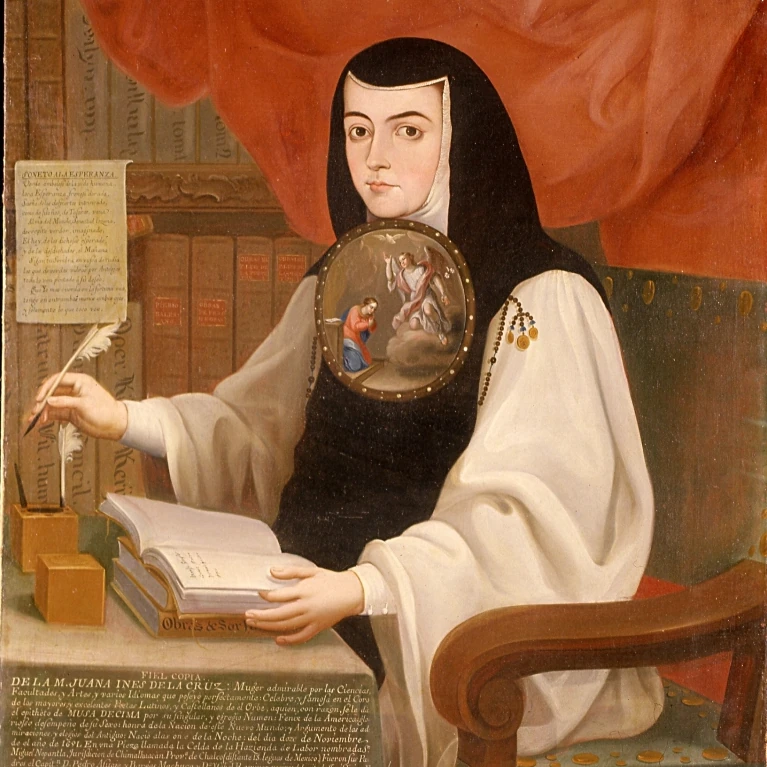Sor Juana Inés de la Cruz: figuraciones del mecenazgo y la autoría
(pp. 30-45; DOI: 10.23692/iMex.15.3)
 Loading...
Loading...Prof. Dr. Beatriz Colombi
 Beatriz Colombi is PhD and professor of Latin American Literature in the Faculty of Philosophy and Letters, University of Buenos Aires, Argentina. She has been guest professor and visiting researcher at universities in the United States, Brazil, Mexico and Spain; she obtained the Greenleaf Fellowship at Tulane University. Her research is focused on Latin American literary studies of the conquest, the colony and modernism, and in the areas of chronicles, archives, poetry, essays, correspondence, fiction, travel literature and intellectual networks; she has published numerous articles, books and anthologies on these topics. She has recently participated in The Cambridge History of Latin American Women’s Literature (Cambridge, 2015), and has published, in co-authorship, Cartas de Lysi. La mecenas de sor Juana Inés de la Cruz en correspondencia inédita (Iberoamericana, 2015).
Beatriz Colombi is PhD and professor of Latin American Literature in the Faculty of Philosophy and Letters, University of Buenos Aires, Argentina. She has been guest professor and visiting researcher at universities in the United States, Brazil, Mexico and Spain; she obtained the Greenleaf Fellowship at Tulane University. Her research is focused on Latin American literary studies of the conquest, the colony and modernism, and in the areas of chronicles, archives, poetry, essays, correspondence, fiction, travel literature and intellectual networks; she has published numerous articles, books and anthologies on these topics. She has recently participated in The Cambridge History of Latin American Women’s Literature (Cambridge, 2015), and has published, in co-authorship, Cartas de Lysi. La mecenas de sor Juana Inés de la Cruz en correspondencia inédita (Iberoamericana, 2015).
Las lecturas de la obra dedicada por Sor Juana a su patrona, la condesa de Paredes, han seguido diferentes caminos: entre literatura y vida, retórica de amor cortés y amistad femenina, poética y política, tradición sáfica, neoplatónica o petrarquista. Este trabajo se centra en el intercambio de representaciones entre la poeta y su mecenas y propone que en este diálogo de figuraciones surgen nuevas agencias femeninas en el siglo XVII, desde un lugar orbital con respecto a la centralidad metropolitana. En estos discursos, tanto privados como públicos, se trazan y fusionan diferentes tradiciones sobre la representación femenina, transformando la figuración de las mujeres en la República de Letras.
The readings of the work dedicated by Sor Juana to her patron, the Countess de Paredes, have followed different paths: between literature and life, rhetoric of courteous love and feminine friendship, poetic and politics, Sapphic, Neoplatonic or Petrarchan tradition. This work focuses on the exchange of representations between the poet and her patron and proposes that in this dialogue of figurations new feminine agencies arise in the XVII century, from an orbital place with respect to the metropolitan centrality. In these discourses, both private and public, different traditions on female representation are traced and merged, transforming the figuration of women in the Republic of Letters.
Claudia Jünke / Jutta Weiser - Editorial
Sara Poot Herrera – Documentos alrededor de Sor Juana
Beatriz Colombi – Figuraciones del mecenazgo y la autoría
Francisco Ramírez Santacruz – Las riquezas del Nuevo Mundo y el ingenio indiano
Jutta Weiser – Discurso criollo y autoría implicita
Claudia Jünke – Identificación y diferencia cultural
Agnieszka Komorowska – Construyendo el espacio teatral criollo
Verónica Grossi – La transformación del código petrarquista
Patricia Saldarriaga – La geometrización del poder
Kurt Hahn – La marginalidad puesta en el centro
Reviews


